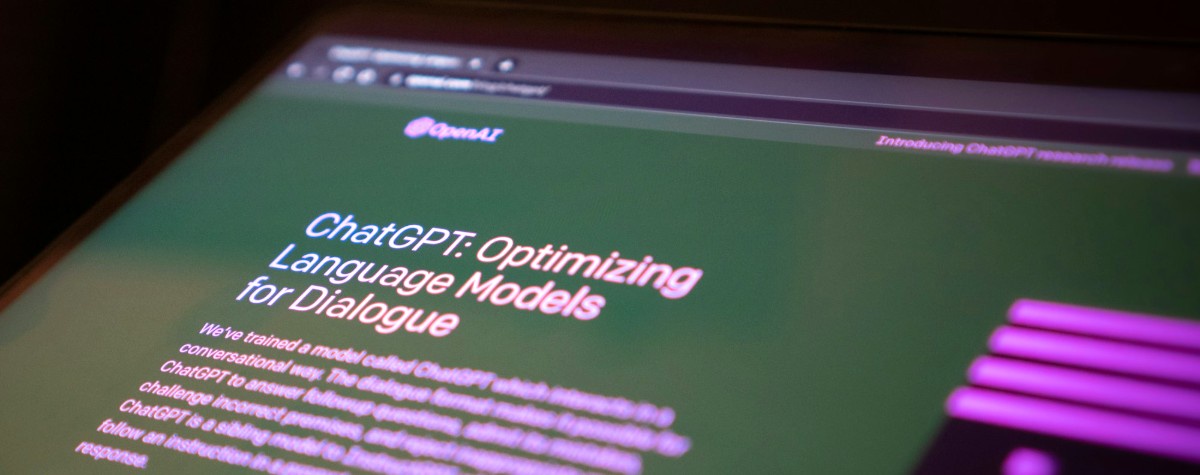The Hidden Risk of AI Blogging
Using AI creates trust issues with potential clients.

I wasn't even sure if I was going to write this one, given that there are so many articles out there already talking about AI and its impact on marketing.
However, I wanted to touch on it specifically in the context of entrepreneurship. It's tempting to use AI, and many new businesses are using it currently to add rocket fuel to their blogging efforts. Seriously, the results that I've seen people get have been impressive.
But as a long-term investment, it's a massive gamble.
The Truth about AI Writing
The reality with AI writing articles today isn’t that the information is necessarily wrong or bad. In fact, many times it’s actually pretty good.
As AI advances, the topic depth is becoming more impressive and helpful. The style isn't half bad, either. Definitely better than what it was a year or so ago. I suspect that it'll only continue to improve, really blurring the line between human made and AI generated content.
So let's put the quality aspects to the side for a moment.
Instead, where I see a problem is in the lack of authenticity as it relates to the author, and the brands that use it.
This is especially true as people start creating fake authors to attribute expertise from AI to these individuals without being clear that the content is AI-generated.
In my mind, this begins to cross over into some ethical gray areas, depending on the nature of the website.
For instance, if somebody is posturing as an expert in a certain industry, they can easily create content that demonstrates a level of expertise that they may not have in order to secure clients.
At present, there is no way to verify this, and I believe that it will create issues with trust from readers. Not just broken trust, but inability for people to fully trust brands and bloggers in the future.
The Risk of Losing Trust
Many entrepreneurs are benefiting from AI blogging. They use it on their business blogs and, in the short to medium-term timeframe, their AI content is crushing it.
I’ve seen it personally on a lot of SaaS offerings.
These companies are churning out an article a day, complete with visuals and formatting, that are on a level we haven’t seen in the past.
The risk, however, is the perception. It looks lazy, and it comes across deceitful (even if intentions are good).
Losing The Relationship
Anybody who’s been in business for any amount of time knows that successful businesses are relationship-driven.
When customers feel like they have a relationship with a brand or a company, they:
- Tell others
- Leave positive reviews
- Continue to spend money with that company
The further a business separates itself from this human connection, the further they are from establishing trust, and therefore making the sale.
Think about a time that you’ve landed on a website and wanted to have a chat with somebody, only to be forced to talk to AI.
This has happened to me many times, and I’ll admit that I’m often able to find the answer using the AI (which is great), but it also doesn’t make me feel any more positive about the company.
There’s no interaction, no feel-good human-to-human aspect, and that is what drives emotions and leads people to purchase or trust a brand. I've personally purchased products after positive interactions in a website chat.
Any business relying on AI for blogging and content creation, those are the businesses that are getting further away from a new customer. That's not the direction you want to be going in.
How You Can Use AI in Content Creation
Using AI for blogging cannot be a long-term play for any serious entrepreneur. There's just too much risk involved.
That said, AI can still be used to help with your content.
Create Outlines
I think having AI create a rough outline is perfectly fine.
You get the different headers and fill in the blanks from there with your own words. At the end, you can ask it to check for grammar mistakes and perhaps suggest improvements in the structure of a sentence, but without changing your own words.
Interview You
This one I've used before and found it to be quite helpful. Tell the AI what you want to write about and have it come up with questions for you to answer. Then, when you're on a walk or something, use the speech-to-text feature on your phone to answer each of the questions.
Before you know it, you have your first draft. Then prompt the AI to compile your responses and to clean up grammar mistakes. Don't have it change or edit your wording. Do that yourself later when you're reviewing it.
Search Intent Research
If you’re trying to write with the intent of being discovered in Google or elsewhere, then you can have it analyze your copy for relevant keywords and suggest where you can link to other articles that you created.
I understand there are tools that do exactly that, but if you’re using ChatGPT or something else, you can have it do this as well without needing to buy into a whole new ecosystem that is essentially just a ChatGPT wrapper.
Refining Popular Content
If you have a popular article on your site, you can ask ChatGPT for relevant related topic ideas and then have it create an outline. Then you go through and write the post according to the outline, making changes where it seems to make sense and adding your own personality.
Yes, this takes more time, but this investment is actually one for the long term. Because that is the biggest point about AI content in today’s content marketing game.
Nobody knows if AI content will ever be punished or devalued, but human content certainly will go up in value and perceived trustworthiness as time goes on.
Invest now in that future trust.
AI as Your Editor
One of the things I'm most guilty of is not proofreading well enough. I write my article, read through it a few times, then publish. Two minutes after publishing and I notice grammar issues that need to be fixed.
This happens way less now because I use AI to act as my editor. It points out my grammar mistakes and offers suggestions. This is so simple, but probably one of my favorite ways to use AI for blogging.
Possible Issue in The Future
Let’s imagine a scenario that likely won’t happen, but I could see very well happening as a possibility five years from now.
The internet is flooded with high-quality AI articles, but because it’s AI, they often say similar things to one another.
People get angry. The internet feels like one big AI chatbot.
To counteract this and to bring some humanity back to the experience, Google decides to add a notifier that something is human-made, or differentiates between AI content and human content in a more obvious way.
Some people won’t care and will still go to the AI content, but there’ll be a lot of people, possibly even more in a five-year timeframe, that will decide they’re tired of AI and trust actual experts in the space, people they can have relationships with.
Keeping your content authentic and human-made means you don’t have to worry about the changes that come in the future as they relate to AI, because AI ultimately relies upon you for its knowledge.
And you'll benefit from any of these potential future shifts.
Final Thoughts
AI has been an incredible asset to humanity across a variety of different industries, including content marketing and blogging.
But I caution anybody using it now for strictly AI content. It's just not the smart long play in any business landscape.
There’s too much risk because you don’t control the future of how AI content will be treated, and the overall consensus seems to be that too much AI content is a bad thing.










